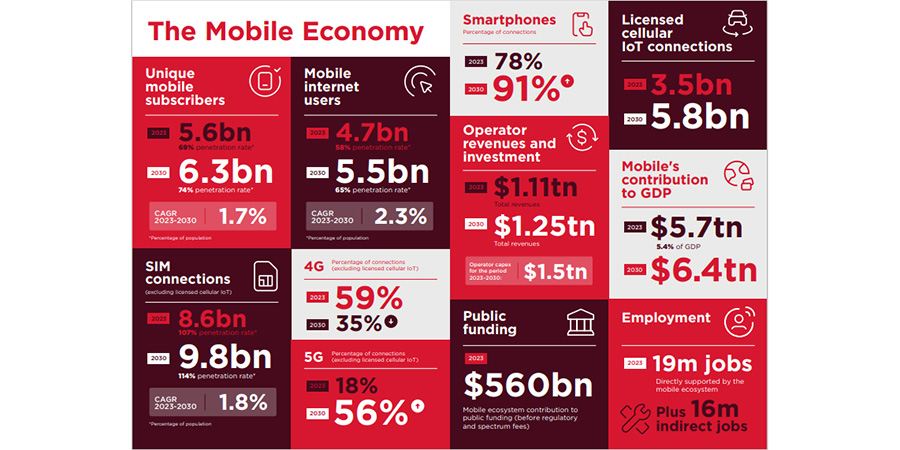The mobile industry is expected to contribute over USD 1 trillion to the Asia-Pacific economy by 2030, driven by the rapid adoption of 5G technologies in the region. This growth is projected to surpass the global average growth rates, as stated in the GSMA's Mobile Economy Asia Pacific 2024 report.
The report, unveiled at the GSMA's Digital Nation Summit in Singapore, revealed that mobile technologies and services accounted for 5.3% of the GDP in the Asia Pacific in 2023, amounting to USD 880 billion in economic value.
The Digital Transformation Catalyst
The main benefits come from the productivity enhancements brought about by mobile services and digital transformation in industries like manufacturing and fintech. The report predicts that the contribution of mobile to the APAC economy will outpace the global average, growing by 15% in the region compared to the global average growth of 12% from 2023 to 2030.
The commercial deployment of 5G standalone (5G SA) networks in seven APAC countries, including Australia, India, Japan, the Philippines, Singapore, South Korea, and Thailand, will drive this growth. These networks, along with technologies like 5G-Advanced, RedCap, and AI, will create opportunities for new 5G applications and investments in the region.
The report estimates that 5G will add nearly USD 130 billion to the APAC economy by 2030, with the manufacturing industry expected to benefit the most from applications like smart factories, smart-grids, and IoT-enabled products.
Related: U Mobile and FGV Prodata Partner to Drive 5G Digital Transformation
Supportive Governing Bodies
To support this growth, the GSMA has launched the GSMA Connected Fintech and Commerce Forum , a community program aimed at connecting the fintech and commerce sectors with mobile network operators in the Asia Pacific through new technologies.
The report also highlighted key trends and forecasts in the mobile ecosystems of the region, including the growth of mobile internet users, the increase in mobile data traffic, the role of satellites in bridging connectivity gaps, and the use of generative AI (GenAI) by operators to drive internal transformations and new revenue streams.
While some APAC countries are leading in digital advancement, there are still significant portions of the population in other parts of the region that remain unconnected due to barriers like affordability and lack of digital skills. Addressing these gaps and building online trust are crucial to ensuring that everyone can benefit from the opportunities that mobile technology offers in sectors such as finance, education, and health.
Latest Policy News: South Korea Establishes ‘6G Society’ to Advance Mobile and Satellite Collaboration
Telecom Review Exclusive Coverage: Digital Battlefront: AI at Mobile World Congress Shanghai





